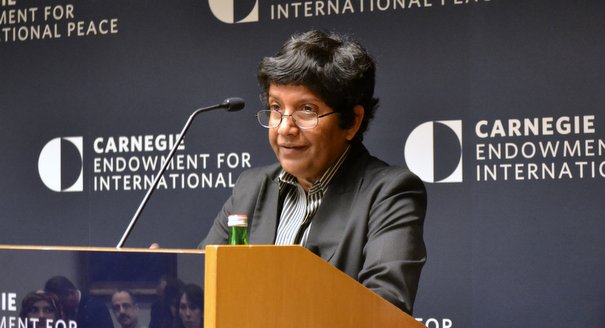Registration
You will receive an email confirming your registration.
Following the December 2014 terror attack on an army-run school in Peshawar that killed 150, 132 children among them, the Pakistan government issued a National Action Plan (NAP), its latest counterterrorism and counterinsurgency strategy. With extremist violence claiming thousands of lives, cross-border attacks undermining security in neighboring Afghanistan, and the risk of a Pakistan-based terror attack on India simmering discontent, Islamabad’s efforts to combat terrorism are vital for both domestic security and regional stability. Samina Ahmed and Mark Schneider discussed this latest approach and how NAP’s success or failure could shape Pakistan’s relations with India and Afghanistan, and impact U.S. national security interests in the region. Carnegie’s Frederic Grare moderated.
Samina Ahmed
Samina Ahmed oversees International Crisis Group’s work in Pakistan, Afghanistan, India, and Nepal. Her team focuses on political, security, and stability issues in South Asia, including problems of authoritarianism, Islamic extremism, domestic and regional terrorism, international involvement and intervention in the region, and domestic insurgencies and the risk of interstate conflict.
Mark L. Schneider
Mark L. Schneider has been senior vice president at the International Crisis Group since 2001, where he directs the Washington advocacy office. Schneider previously served as the director of the Peace Corps, as assistant administrator of the U.S. Agency for International Development, and as principal deputy assistant secretary of state for human rights and humanitarian affairs.
Frederic Grare
Frederic Grare is senior associate and director of Carnegie’s South Asia Program. He works on India’s Look East policy, on Afghanistan and Pakistan’s regional policies, and on the tension between stability and democratization, including civil-military relations, in Pakistan.
